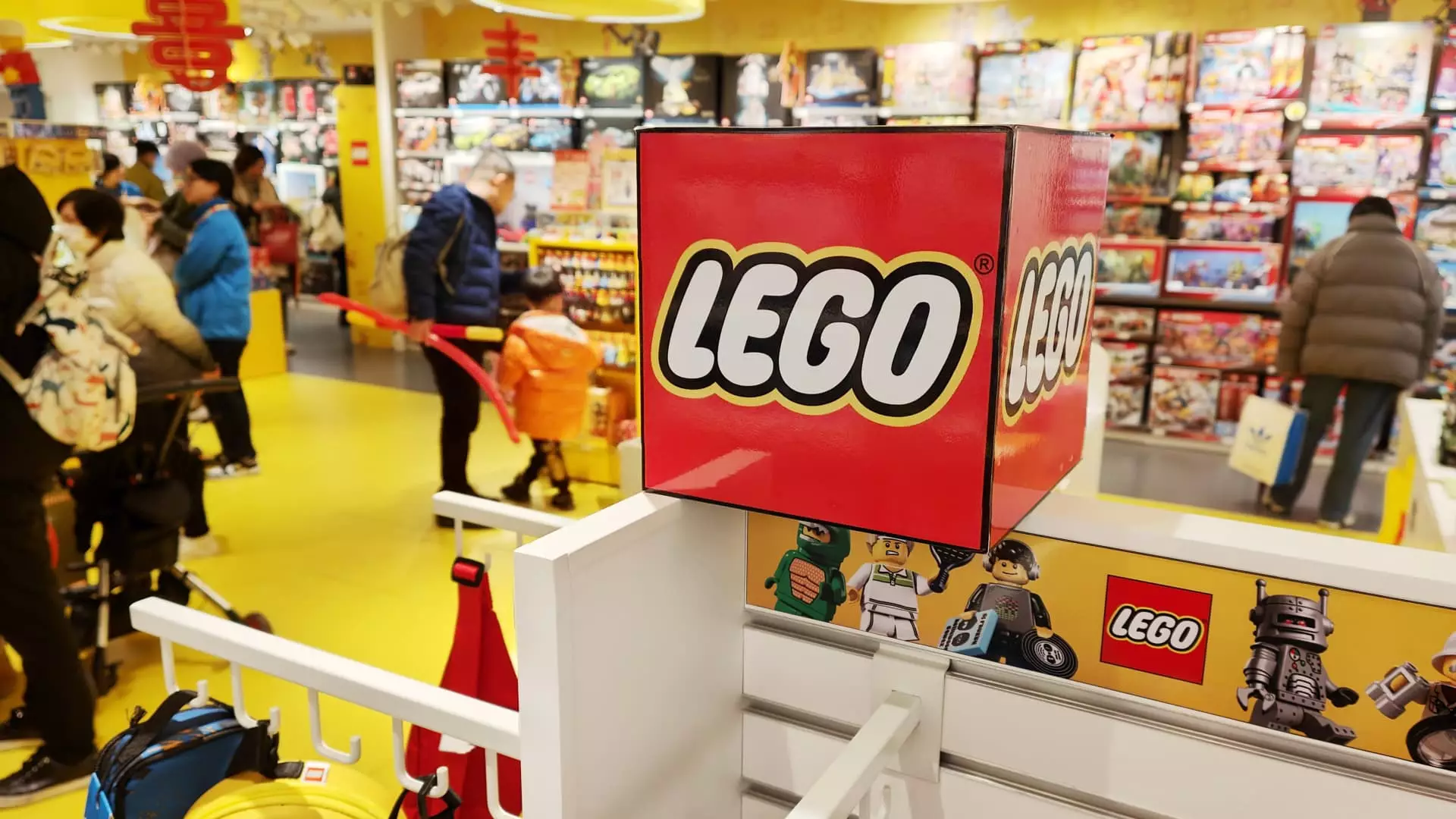In the midst of an inflation-fueled sales slump in the toy industry during the first half of 2024, Lego managed to defy the odds and reported a significant increase in revenue. With a 13% jump in revenue, reaching 31 billion Danish krone, or about $4.65 billion, Lego seems to be gaining market share brick by brick. CEO Niels Christiansen attributes this success to the strength across their portfolio, especially with Lego Icons and Lego Creator, as well as their partnership with Epic Games’ Fortnite. Unlike its competitors, Lego has seen an increase in volume this year, indicating that consumers are no longer “trading down” to lower-priced sets as they did last year. This growth in volume has stabilized the company’s position in the market.
In contrast to Lego’s success, publicly traded competitors like Mattel and Hasbro have experienced declines in net sales. Mattel saw a 1% decrease in net sales in the first six months of 2024, while Hasbro reported a significant 21% drop in net revenue between January and June. Mattel is struggling with tough comparisons from the previous year’s toy sales driven by “Barbie,” while Hasbro is still recovering from its divestment of eOne. On the other hand, Lego’s diverse range of products continues to appeal to both kids and adults, setting them apart from their rivals.
Despite facing challenges in the Chinese market where sales have remained flat, Lego remains committed to growth in the region. With the opening of 40 Lego stores in the first quarter, and plans for 60 more openings in the second half of the year, Lego is determined to tap into the long-term potential of the Chinese market. CEO Niels Christiansen also highlighted Lego’s sustainability efforts, emphasizing the company’s commitment to using renewable and recyclable materials in their products. By doubling the amount of renewable and recyclable materials used in their bricks compared to the previous year, Lego is leading the way in environmentally friendly toy manufacturing.
Looking ahead, Lego aims to source half of its raw materials from sustainable sources over the next few years. By investing in sustainable practices and maintaining a diverse product range, Lego is well-positioned to continue its success in the toy industry. With a focus on innovation, global expansion, and sustainability, Lego stands out as a leader in the competitive toy market. As other companies continue to face challenges, Lego’s winning strategy serves as a blueprint for sustained growth and resilience in the ever-changing toy industry landscape.


Leave a Reply